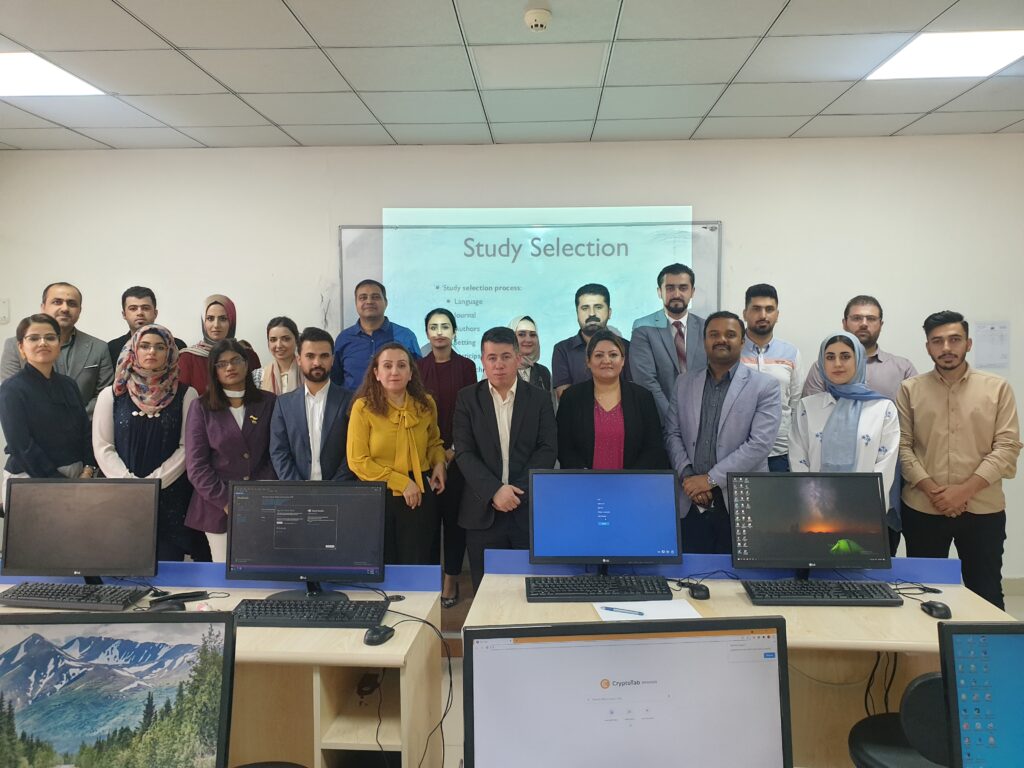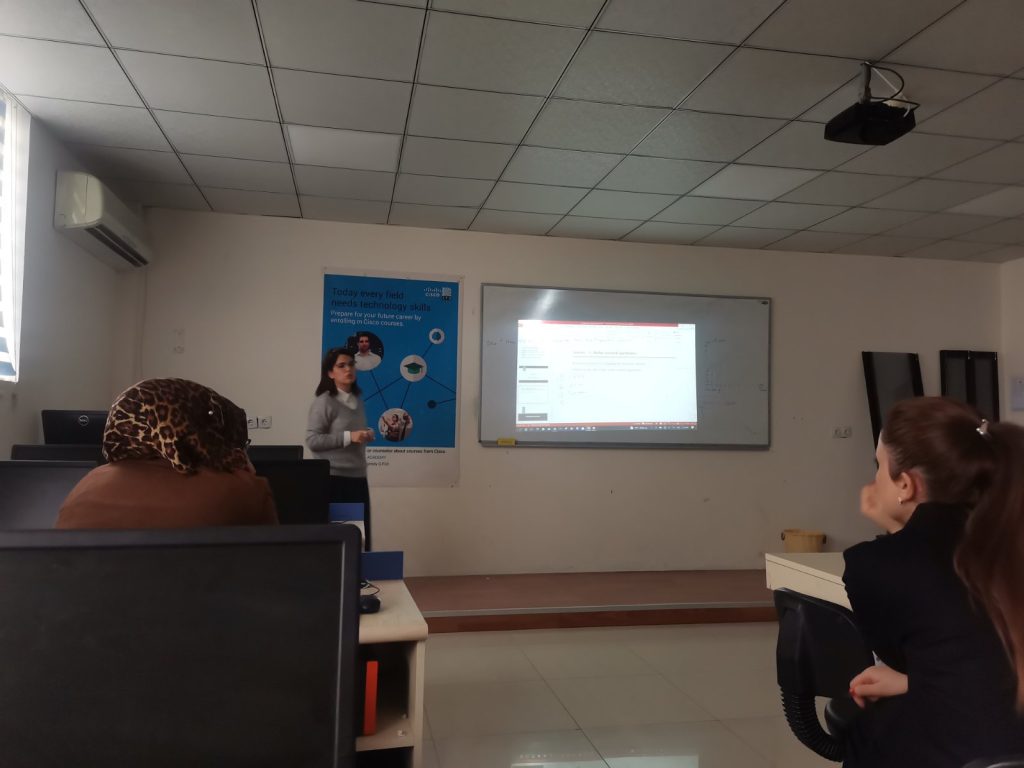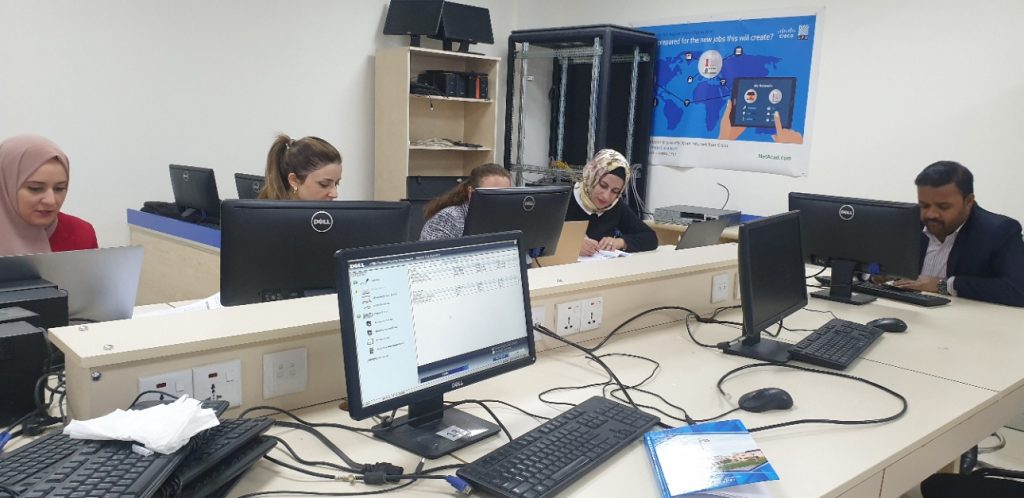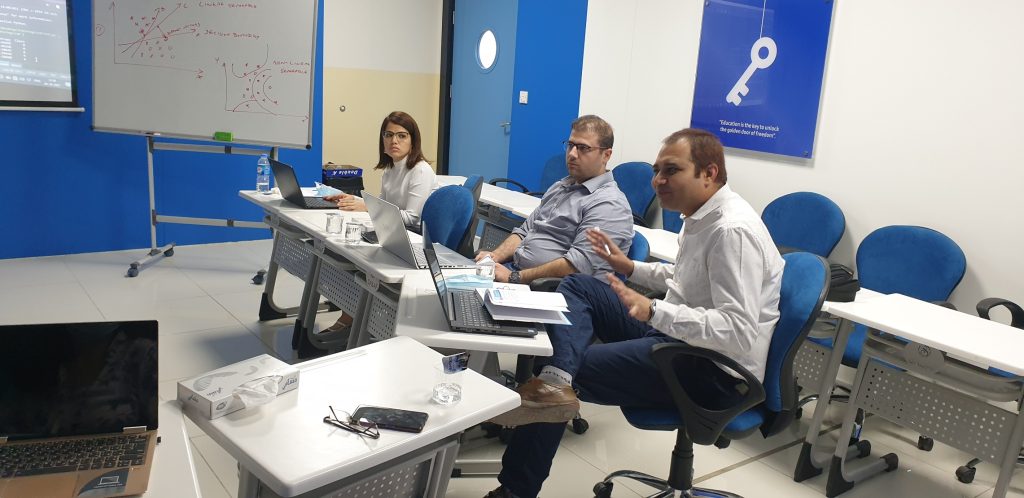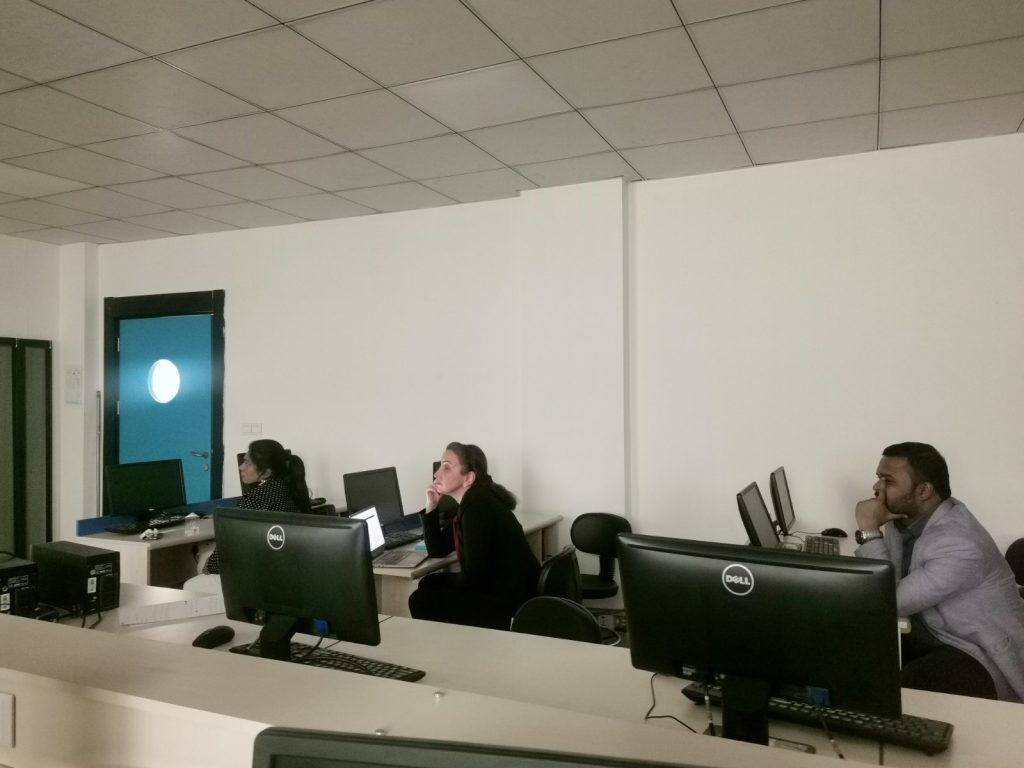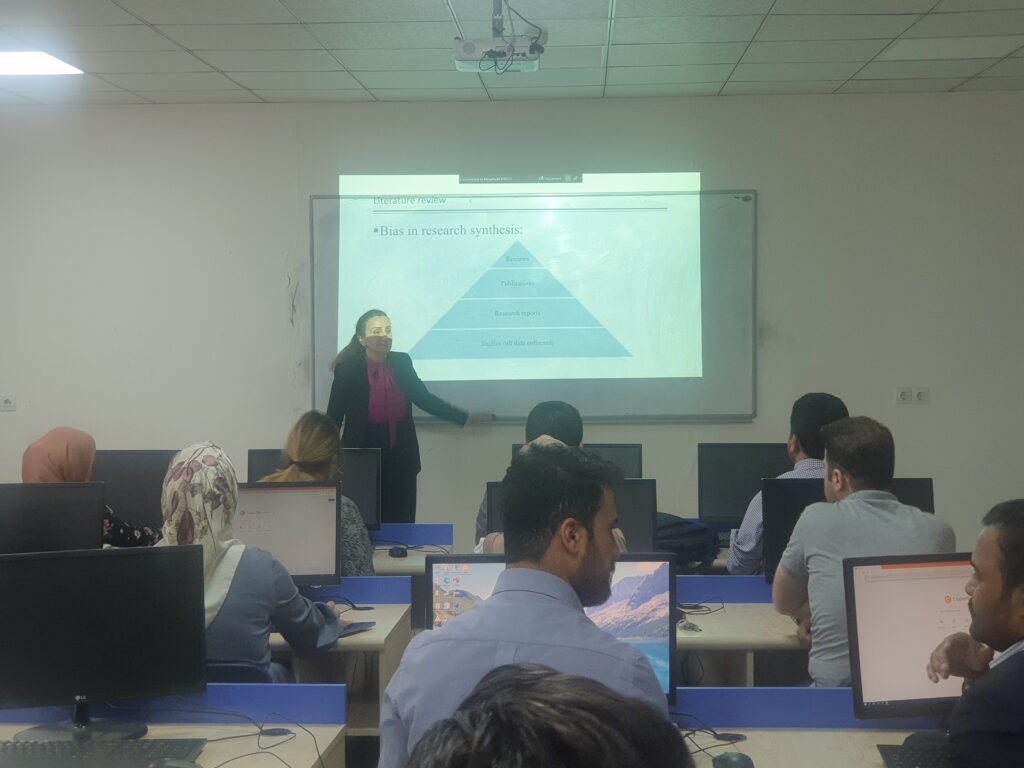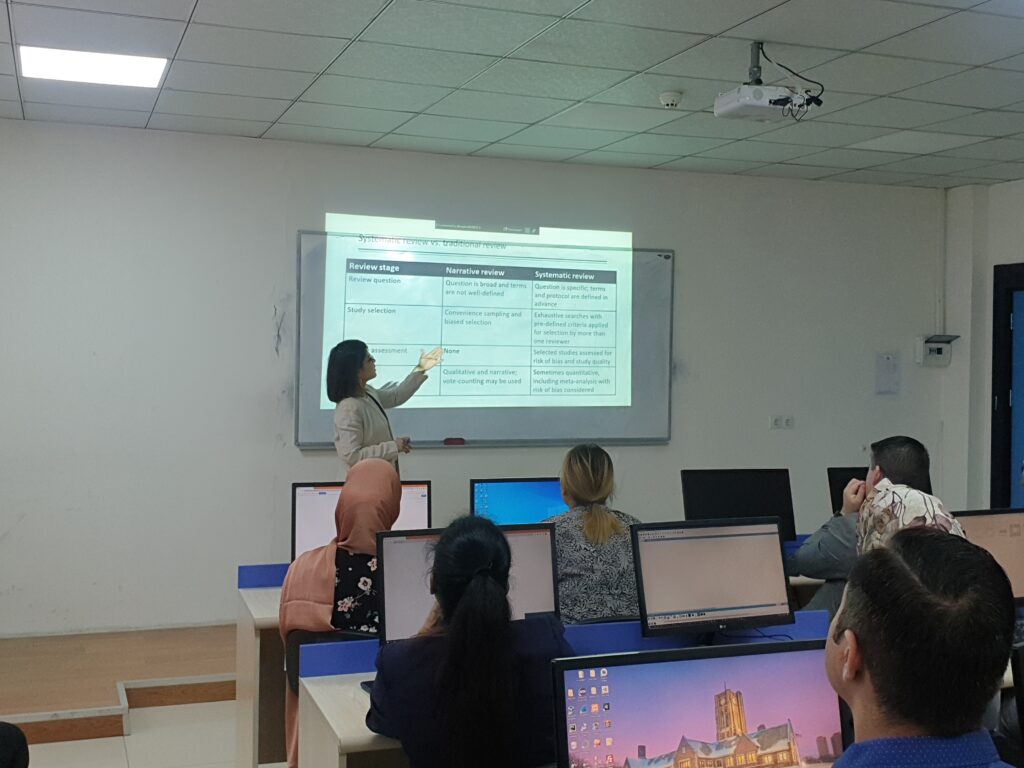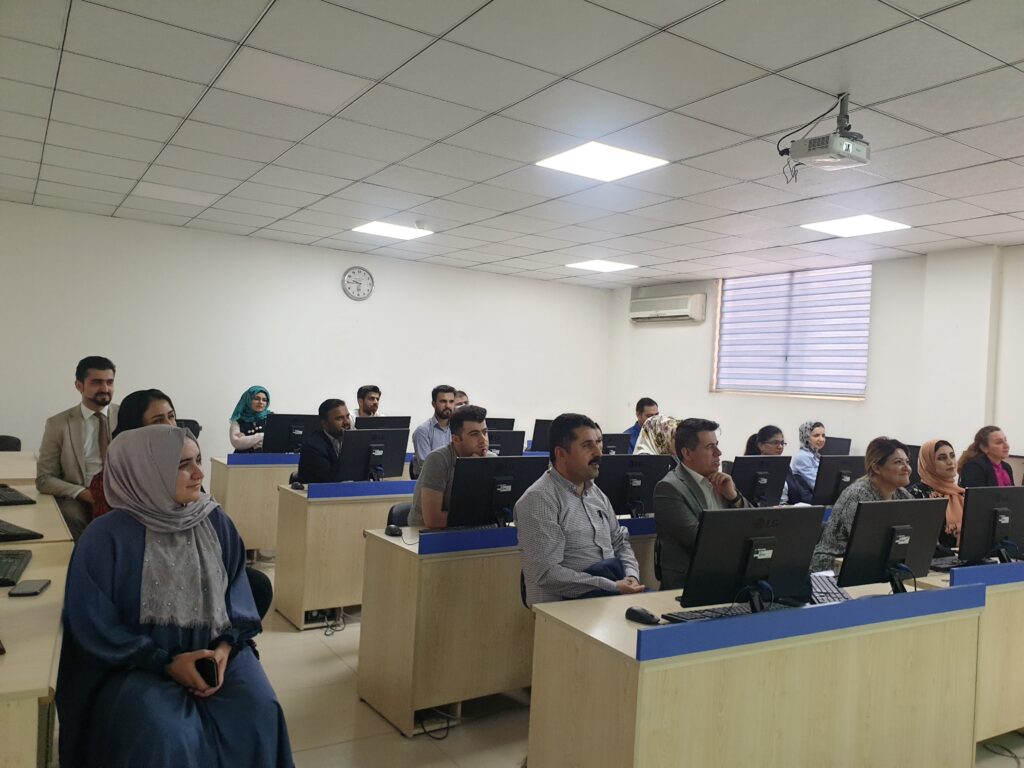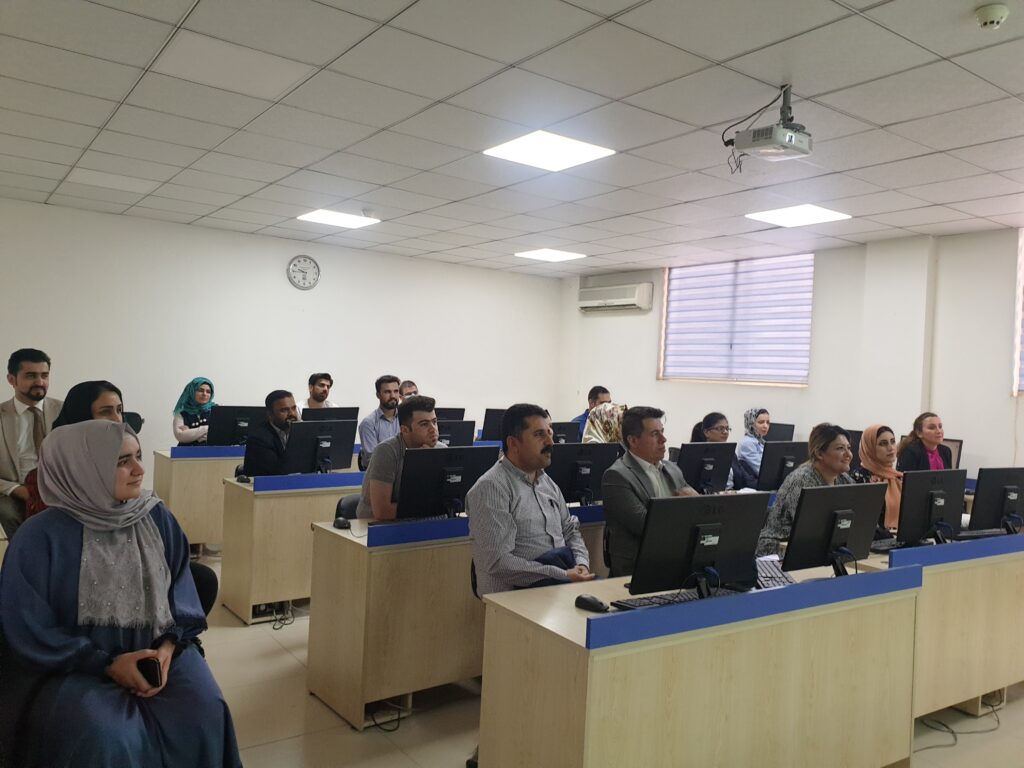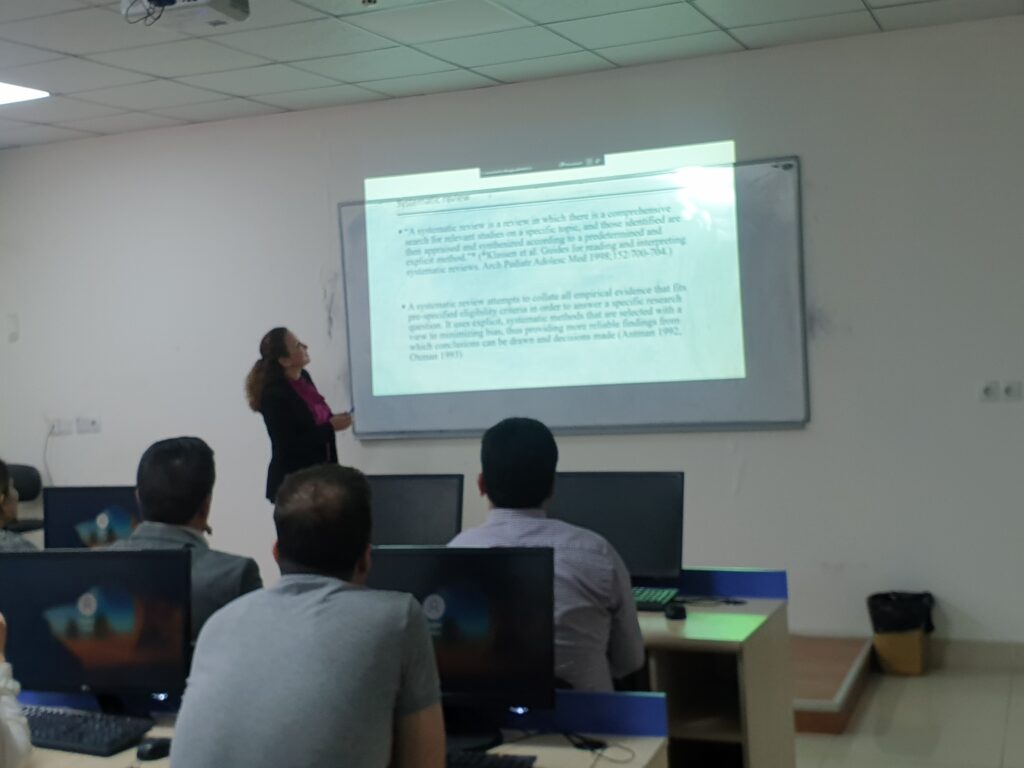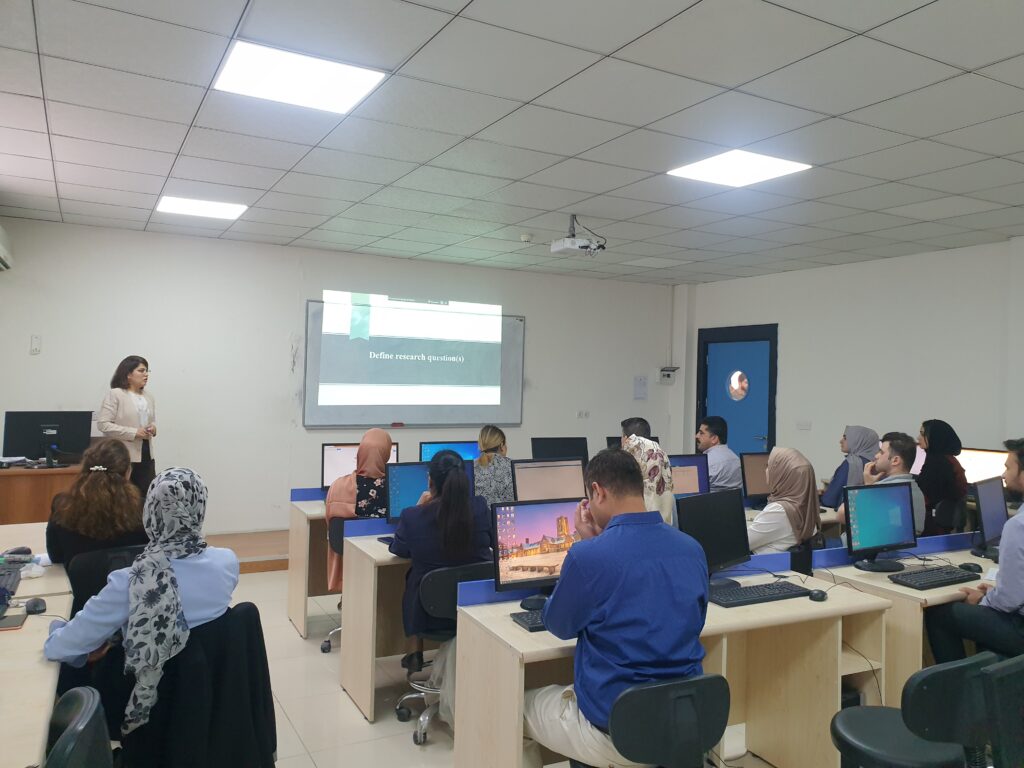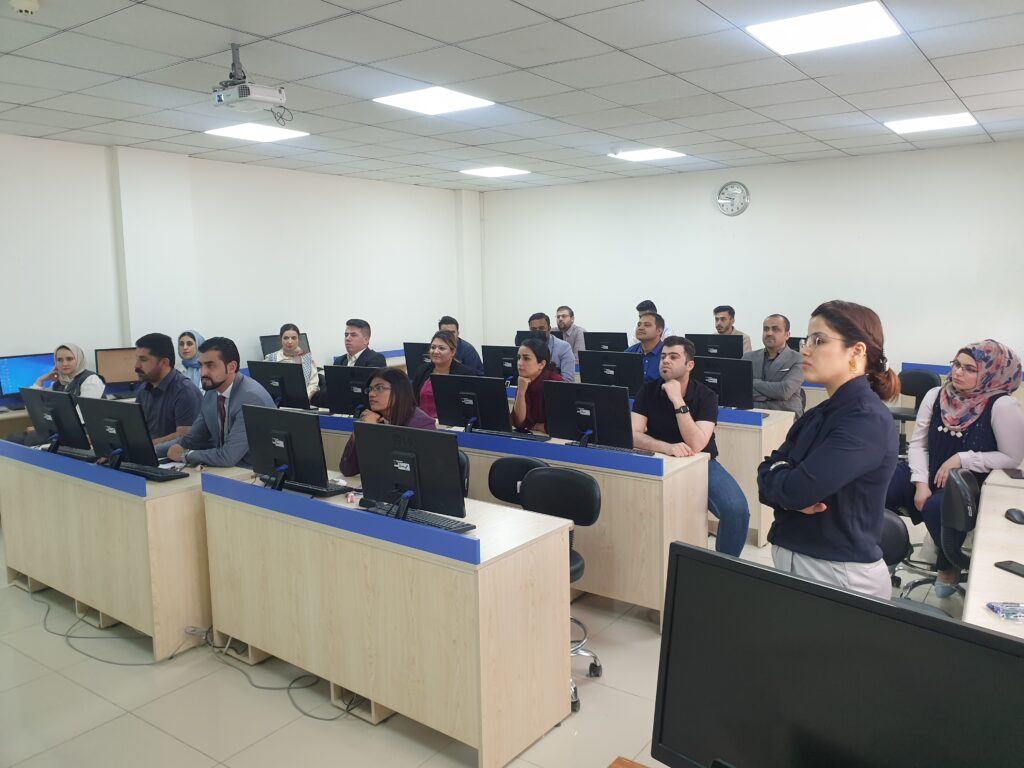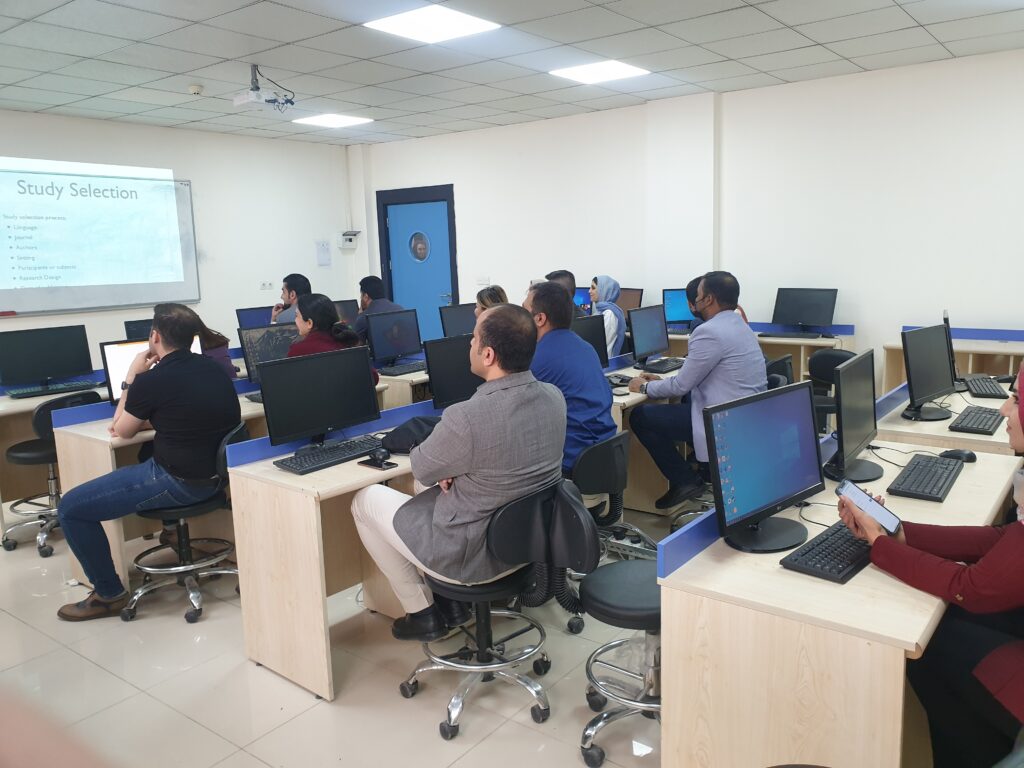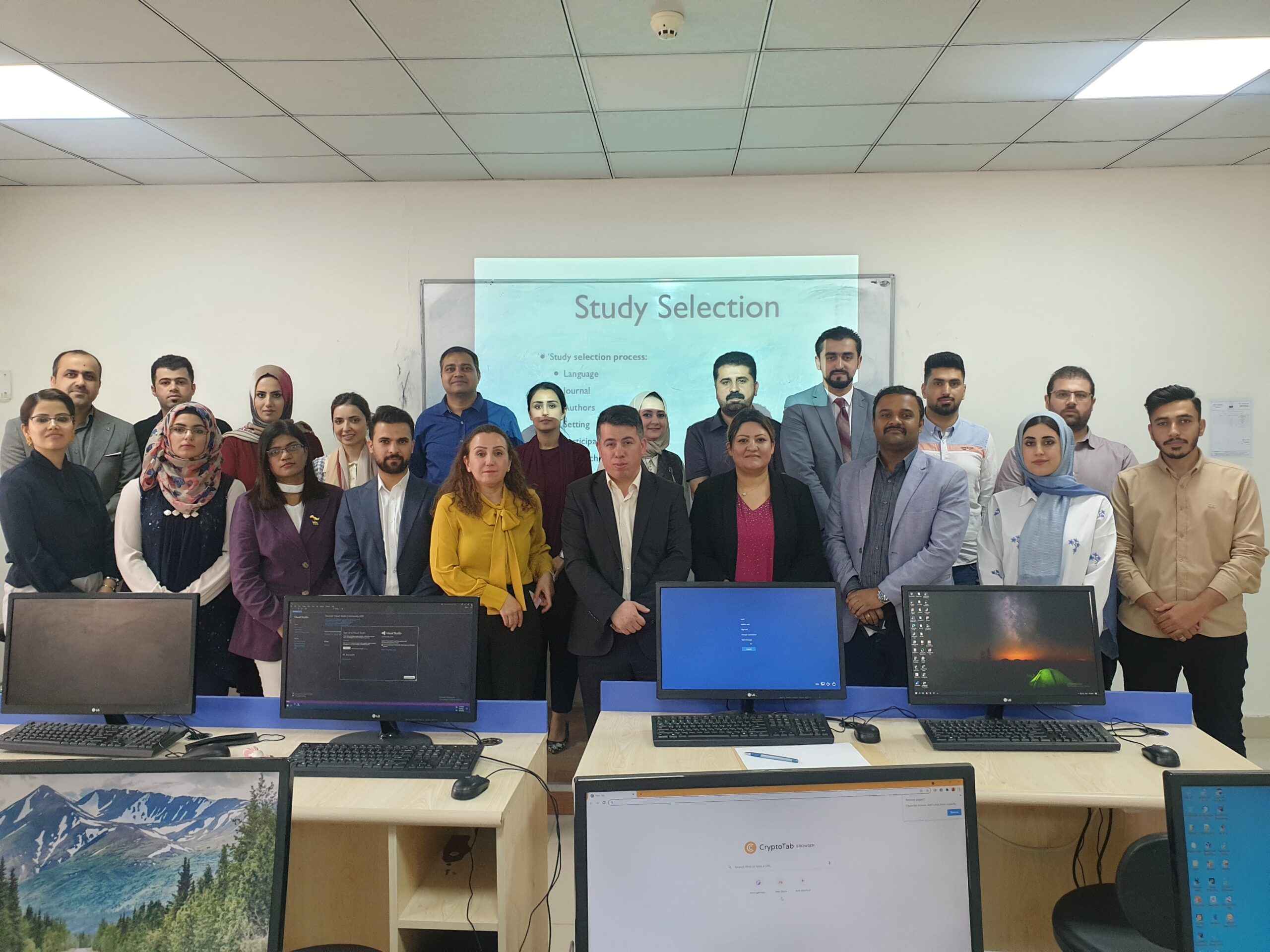The college of Engineering and Computer Science/Department of Computer Engineering held a training course entitled “How to Create Systematic Mapping Study Papers” from 20 October 2021 to 22 December 2021 (One Session Per Week – Wednesday). On Wednesday, December 22nd, 2021, the last session was held from 12:00 p.m. to 2:30 p.m.
The sessions were presented by Assistant Lecturer Hazha Yahia from Information Technology and Assistant Lecturer Teeba Ismail Kh. from Computer Engineering who explained to the trainees the methods mainly in identifying and classifying the existing research papers that report on the utilization of practical experiences in software engineering education. Also, a well-defined method of systematic mapping is used to develop a Systematic Mapping Study in order to make an overall analysis of the research field. And the other eight sessions were presented by assistant lecturer Teeba Ismail, she examined many interesting aspects of a systematic review study and discussed how to write the paper’s conclusion and discussion. There were 20 trainees in attendance, the majority of them were College of Engineering and Computer Science faculty members.
Training Outcomes:
- Understand the rationale for conducting a systematic review and meta-analysis
- Understand the process related to steps in conducting systematic reviews and meta-analysis
- Be able to formulate a research question and protocol using the PICO framework
- Understand different methods of information and data synthesis based on qualitative and/or
- quantitative evidence
- Identify, access, and perform literature search using key sources
- Use bibliographic reference-manager software programs to manage studies
- Perform screening of articles according to PRISMA guidelines
- Develop and use a data extraction form to extract relevant outcomes
- Assess quality and validity of studies using a standardized quality appraisal form
- Identify and consider potential sources of bias and heterogeneity within and between included
- studies
- Synthesize results using meta-analysis in Stata both qualitatively and quantitatively
- Interpret effect size metrics and construct a report to draw relevant conclusions
Place:
Lebanese French University , Building 3, Lab. no. (4).
Trainers Information:
- Teeba Ismail
got a B.S. Degree in optical electronics from Al-Nahrain University, Baghdad, Iraq, 2004, and M.S. Degree in Laser and optoelectronics from Al-Nahrain University, Baghdad, Iraq, 2007. She got a Ph.D. degree of Control and Compute Engineering from Salahaldine University, Erbil, Iraq. She is lecturer at Erbil, Iraq, Lebanese French University Faculty of Engineering. Her research involves model-based testing and IoT software systems quality assurance.
- Hazha Saeed Yahia
She received a bachelor’s degree in Information Technology from the University of Kurdistan – Hawler in 2010 and a master’s degree in Computer System Engineering from the University of Kurdistan – Hawler in 2016. She is now a Ph.D. candidate in Information and Communication Technologies at Duhok Polytechnic University. She is currently working as an assistant lecturer at the Department of Information Technology, Faculty of Computer Engineering and Science, Lebanese French University. Her research areas include; e-services and e-governments, artificial intelligence, and wireless sensor networks.
بەشی تەکنەلۆژیای زانیاری لە کۆلێژی ئەندازیاری و زانستی کۆمپیوتەر خولێکی راهێنانی ئەنجامدا لە ژێر ناونیشانی “”How to Create Systematic Mapping Study Papers ” لە رۆژی سێشەممە رێکەوتی ٢٢ی کانونی یەکەمی ٢٠٢١ لە کاتژمێر ١:٠٠ تا ٢:٣٠ی دوای نیوەڕۆ کە لەلایەن مامۆستای یاریدەدەر طیبە اسماعیل پێشکەشکرا. تیایدا تیشک خرایە سەر چۆنیەتی نووسینی ئەم جۆرە لێکۆڵینەوە سیستەمییانەو چۆنیەتی ئەنجامدانیان. لەم خوولەدا 20 بەشداربوو بەشداریان کرد کە زۆربەیان مامۆستایانی کۆلێژی ئەندازیاری و زانستی کۆمپیوتەر بوون.
